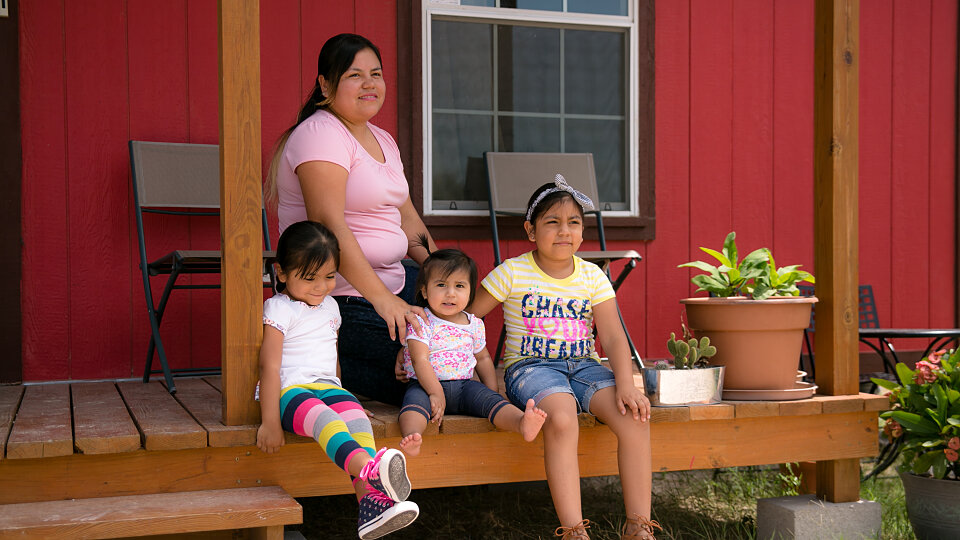Why collaboration across all levels is critical during the pandemic
This editorial was written by Diego Silva, director of the Buckner Family Hope Center at Peñitas, and originally appeared in The Monitor. Diego also serves as vice-president of the board of the Texas Christian Community Development Network, as an academic coach in the Master of Public Administration program at the University of Texas Rio Grande Valley, and as a fellow at USDA Center for Faith and Opportunity.
Our world has completely changed in ways no one has ever experienced. The coronavirus pandemic has brought many sectors of our global society to a screeching halt, and we have yet to see the real consequences this virus will have on our way of life.
The reality of the virus’ macro impact is just now being discussed at length by experts. Fortune Magazine recently reported “more people lost their jobs in two weeks in March 2020 than in the entire 2008-2009 recession.” Financial firms like Morgan Stanley and Goldman Sachs are projecting a reduction in the real gross domestic product by 30% and 34%, and others have even dared to project a 50% decrease in the real GDP. To put this into perspective, the real GDP shrunk by 30% during the Great Depression.
But what does that mean for many of us in the Rio Grande Valley? Wall Street seems a world away for the families my team serves through our nonprofit, Buckner International, and the Buckner Family Hope Center at Peñitas.
We work closely with vulnerable families in the Valley to strengthen them through education on finances, job skills, parenting and more. We have helped numerous families open their first checking and savings accounts or implement their first budget, so the idea of stock market projections is far from relevant and federal aid packages seem unattainable. Based on a 2018 report from the Texas Tribune, the same is likely true for more of our fellow residents than we want to admit, as roughly one-third of the Valley lives in poverty.
I am scared to think how that number has grown and will continue growing because of the pandemic. The level of poverty in our community is overwhelming, which is why it is important to remember we are not alone, and collaboration is going to be the only way we can address the situation.
Collaboration on a local and federal level was the focus of a conference call I participated in recently. The call was spearheaded by the U.S. Department of Agriculture Office of Partnerships and Public Engagement and involved members of the Rio Grande Valley Local Community Prosperity Council.
The call included various USDA departments the Food Bank of the Rio Grande Valley, Workforce Solutions, U.S. Small Business Administration, Baylor Collaborative on Hunger and Poverty, and Buckner. We brought together leaders from over 30 nonprofits, faith-based groups, business and government.
Communicating and sharing information about our resources was invaluable. We each presented on our response to the pandemic to date, but more importantly, we planted the seeds for collaboration.
The negative impact of the pandemic has been exacerbated in historically vulnerable communities like the Rio Grande Valley. The McAllen Chamber of Commerce released data in mid-April regarding the impact of the pandemic on the area’s economy. In McAllen, 60% of businesses reduced operations, 84% of businesses suffered economic injury, and 55% reduced staff capacity. Meanwhile, an estimated 101,537 employees were furloughed, laid off or received reduced hours.
As parents lost their jobs, they were faced with the harsh reality of figuring out how to support their families. As schools closed, parents became educators. As days become weeks, and weeks become months, the pressure and stress of the future is leading to an increase in child neglect and domestic abuse.
During the USDA meeting, we strategized ways Prosperity Councils can respond from a local approach by connecting individuals to food security programs, technological infrastructure resources, and much needed financial relief through the CARES Act Paycheck Protection Program and other federal grant programs.
Opportunities like USDA Rural Development Distance & Telemedicine Learning Grant provide infrastructure to Valley organizations, connecting patients and clients utilizing technology. Furthermore, USDA announced the availability of $3 million in grants addressing issues such as food access and education, creating innovative ways to increase local food production. Buckner and other nonprofits will work together to ensure this aid reaches people in the Valley.
We are seeing the incredible power of human goodness. By working together in strategic collaboration, we can overcome this crisis. This sense of collaboration extends beyond organizations to individuals simple acts of kindness.
Even in our hyper-polarized culture, when faced with a common challenge, humanity will rise above their differences and work together to preserve the most basic structures of our democracy. I believe that this is what our Founding Fathers envision and sacrificed for our nation so many years ago.
The impact this pandemic will have on organizations serving vulnerable communities is not fully known. However, it is safe to say that we are building a new normal in the way we serve families, shop, work, worship, and live our daily lives. The challenges our Valley communities face will be overwhelming, but we can also rest assured that “Valley-ites” are reshaping organizational strategies and service delivery methods to better serve those under their care. Educators are working long hours to make sure children continue their education and first responders are risking their lives and the lives of their loved ones to care for us and provide something that money cannot buy – peace of mind.
The Rio Grande Valley has had its share of issues and hardships. This crisis highlights the resiliency, ingenuity and entrepreneurial spirit that is alive within our communities and a crisis like this is one of the best ways to show the world what we are made of here on the border.




Add a Comment